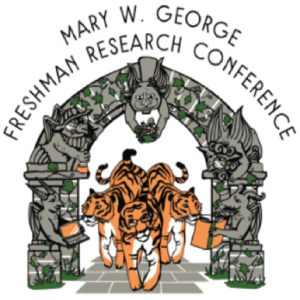Writing seminar is a demanding and rigorous rite of passage at Princeton. The packed schedule, along with the constant writing and peer editing, makes it seem like you’re taking two courses instead of one.

But for all you first years, I promise (as a *hopefully wiser* sophomore) that there’s a lot that you can get out of this one course that Princeton requires all first years to take. Although writing seminar is a trying class, it really is the basis of writing for all your future classes at Princeton. (I know, I know, I sound like your writing seminar professor. I’m sorry!)
I still remember the dread I felt when I first heard about the R3, or revised essay #3. For the R1 and R2, the argument was, to a certain degree, provided by the professor. The R3 asked me to develop “an original argument,” and the possibilities for the research topic seemed endless. I had no idea where to start. How was I going to write this?
Right when I was starting to feel the deadline for D3, or draft essay #3, closing in, I heard about an event that the Writing Center holds for first years in writing seminar – the Mary W. George Freshman Research Conference.
The conference – it sounds more formal than it is – is designed to showcase the work of first years who took a writing seminar in the previous semester. This year, it’ll feature the work of students who took writing seminar in the spring of 2018. The students will give 10 minute presentations of their work in small panels, and it gives you the opportunity to ask these students whatever questions you have.
[The date of this year’s event is November 16th, 2018. The detailed schedule is released closer to the event. You can check it out here.]
Personally, I appreciated the conference because it gave me an idea of the size and scope of the project. I really struggled with finding my initial research topic, but going to the conference helped me start to get a sense of what kind of topic I could potentially research.
In one particular panel I sat in on, the student had used photographs as their primary source and analyzed how they helped to “humanize” the lives of Jewish people during World War II. Realizing the different types of media and sources I could analyze as my primary source helped me keep my mind more open when I brainstormed my research topic.
Just for perspective, I also asked a few of my friends who went to the conference what they got out of it as well. Here are some of their thoughts:
“It was helpful knowing in what ways students approached the difficulties they encountered in their draft and revision process, and hearing different ideas and ways students came up with original ideas was inspiring to come up with a nuanced and unique argument.”
“It was fun to hear about what other writing sem students were researching and writing about. Without the conference, you are limited to topics that pertain to the theme of your specific seminar, which can seem repetitive over the course of the semester.”
One aspect of the conference that you should definitely take advantage of is that you can ask questions. You can think of questions after listening to the presentations, but it’s helpful to have a few questions ready beforehand.
Here are a few good questions to ask if you can’t think of any:
- How did you think to research the topic you ended up writing on?
- What were some difficulties that you encountered in the writing process?
- How did you keep track of notes from different sources?
- Where did you find the sources that you ended up using?
- How did you decide on your thesis?
- What are some aspects that drastically changed from your D3 to your R3?
- What are particular components from the Writing Lexicon* that you focused on?
You’ve already taken a big step towards finishing your R3 by reading this article. You’ll take an even bigger step if you attend the Mary George Freshman Research Conference. You can do it!
— Nanako Shirai, Natural Sciences Correspondent
*The Writing Lexicon is a handout given in writing seminar that lists key terms that describe the main elements in academic writing. Many students continue using the Lexicon terms even after finishing writing seminar.

